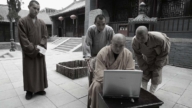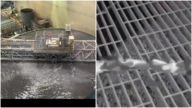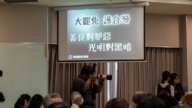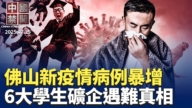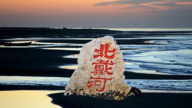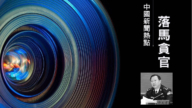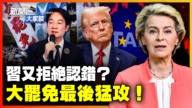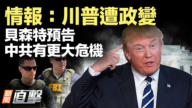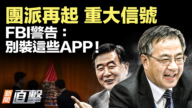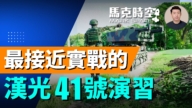【新唐人2013年01月05日讯】今年3月中共将举行新一届人大、政协“两会”,新的常委班子将正式上任,外媒评论,新的常委班子趋于“平庸化”,可能会在中共内形成另一种“强书记、弱常委”的班子格局。不过外界认为,“强势书记”只是在寻求延缓共产党灭亡的宿命,“强书记”未必有意为中国及中国民众做出贡献。
香港《争鸣》杂志指出,中共即便无法真正反腐,也会以反腐为政治口号来愚弄百姓。不同的权力时代,反腐政治有不同的表现:江泽民时代,“大腐败反小腐败”,最终结果是“以腐败换团结”;胡锦涛时代,“点射式反腐”完全政治化,陈良宇与薄熙来两位政治局委员被点中,成为胡政治的两大亮点。习近平时代,开启王岐山以网络为武器,掀起“民粹式反腐”。
外界认为王岐山发动“网络反腐”,背后有习、李的支持,结果就是排名在王岐山之前的张德江、俞正声与刘云山,以及排名在王岐山之后的张高丽“被虚化”。有消息指称:习、李选择的“弱常委制”,是他们与江泽民和胡锦涛两代艰难谈判的结果。
旅美中国问题研究人士张健认为,中共内部的强弱只是一台戏,习近平上台之后搞的所谓反腐,蒙蔽了很多民众的眼睛。
中国问题研究人士张健:“无论他是强势还是弱势都是十八大既定的一个方针。现在习近平换种玩法,很多人不适应,也不知道共产党卖的什么药?共产党就是要保证它自己的江山,保证它的一党独裁这样的体制,保证它继续残剥人民,无论它是强还是弱,是虚还是实,都是这几个人在做的一个联合的演出。”
也有评论认为,在所谓的“习李体制”下,总理与总书记的角色位置,与“胡温体制”比,可能会倒过来,在胡温时期,温家宝是一个跃跃欲试,要破局的人,而胡锦涛是个维稳派,现在习近平可能是个跃跃欲试要破局的人,而二把手李克强是一个守成之人,在这种情况下,破局的可能性大。
张健:“每一个中国当官的,每一个人都沾满了老百姓的鲜血,这样的人怎么可能把救中国作为第一使命,是不可能的。他也救不了,共产党根本无法救中国,共产党的体制只培养独裁、专制,只培养这个,不会培养一代明君,怎么可能对习近平更加寄予厚望呢?”
北京时政观察人士华颇指出,习近平和王岐山的反腐动作是在效仿当年邓小平的经济体制改革,企图从既得利益集团里拿出一小块蛋糕来平息民愤,继续共产党执政的合法性,不过遇到了利益集团的强烈狙击。华颇说,像收入分配制度改革,和土地征地制度改革,都是动了既得利益集团的蛋糕,所以迟迟不能出台。
北京时政观察人士华颇: “他(习近平)改变的话只能在经济上改变,只能在草根阶层的经济诉求上进行一些调整,说白了就是重新分一分蛋糕,能够化解一下社会矛盾,不要指望习近平能搞其他的。而且这个反腐我看也是前途渺茫,现在中共腐败严重,而且级别越来越高,所以看到当网路举报这股风越来越旺的时候,中共限制网路的法律法规就出台了。”
“网络反腐”的同时,整个中共官场却形成了网络恐惧症。去年年末,官媒《人民日报》率先发表短文《网络需要依法运行》,要求“管住不负责任的谣言”;《人民网》也发表文章《管一管网络乱象是多数百姓愿望》;而中宣部直控的《光明网》同时发表评论员文章:《互联网需要高级立法》,要求“最大程度消除网络的负面影响”。
前《新华社》驻苏俄的高级记者给新上任的中宣部部长刘奇葆写信,信上说,“舆论失控是前苏联亡党与解体的最大推力”。
采访编辑/刘惠 后制/钟元
CCP Anti-Corruption Via Internet Encounters Obstacles
In March this year, a new session of the National
People’s Congress, and People’s Political Consultative Committee will be held.
The new leadership of the Chinese Communist
Party (CCP) will formally take power.
Overseas media commented that the new sessions
of the Politburo Standing Committees are mediocre.
So, it will probably form an inner leadership structure
of a “strong secretary” and “weak standing committees”.
However, observers think the so-called “strong secretary”
was only seeking a method to delay the death of the CCP.
The “strong secretary” may be not sure how
to contribute to China and the Chinese people.
Hong Kong’s “Chengming” magazine pointed out that
even if the CCP had no way of actioning anti-corruption,
it would use it as propaganda to fool the public.
Anti-corruption took different forms
during different era’s of CCP rule.
Under Jiang Zemin, it took the form of “big
embezzlers standing against minor embezzlers”.
This resulted in a united leadership
dependent on corruption.
Under Hu Jintao, they acted “intentionally
against corruption”, and two Politburo committees of Chen Liangyu and Bo Xilai were chosen.
They became the two strengths of Hu’s dictatorship.
In Xi Jinping’ time, Wang Qishan initiated anti-corruption
through the internet, or so-called “social anti-corruption”.
Observers suggest Wang Qishan initiated anti-corruption
via the internet with Xi Jinping’s and Li Keqiang’s support.
The result is Zhang Dejiang, Yu Zhengsheng
and Liu Yunshan, whose positions were higher
than Wang Qishan, and Zhang Gaoli whose
position was lower than Wang, are all weakened.
Some reports said that Xi and Li chose the “weak
standing committees” in order to compromise
negotiations with Jiang Zemin and Hu Jintao.
Zhang Jian, US-based China expert, suggests that it
is only an internal show of who is strong and who is weak.
Xi Jinping’s ‘anti-corruption’ has fooled many people.
Zhang Jian: “No matter who is strong or weak, the
outcome has been decided in 18th Party Congress.
Now, Xi changed the game and some people are
not used to it, so don’t know the purpose of the CCP.
The purpose of the CCP is just to maintain its regime
and the dictatorship system of one-party rule in China.
It can then guarantee to continue to oppress people.
So no matter who is strong or weak, it is only
a show played out by the leadership of the CCP.
Analysts believe that under Xi and Li’s administration, the
roles of Premier and General Secretary’s may be reversed.
During the Hu-Wen era, Wen Jiabao appeared to be eager
to break the system, while Hu wanted to maintain stability.
Now, Xi is a man who is eager to break the old system,
while his assistant Li Keqiang is a conservative.
So, in this case, it’s more possible to break the system.
Zhang Jian: “Every official in China
owes much to Chinese people.
It’s impossible that such people will act
with saving China as their first mission.
In essence, the CCP can’t save
China, and it can only train a dictator.
The Party can’t train a revolutionary ruler within it’s
system. How can you have high hopes to Xi Jinping?”
Hua Po, political observer in Beijing, comments that Xi
and Wang’s anti-corruption policies are simulating
those of Deng Xiaoping’s economic system revolution.
They tried to remove small interests from interest groups,
to appease the public’s anger, and continue CCP rule.
However, they are strongly propped
up by these interest groups.
Hua Po said that, as with the income distribution
system revolution and land acquisition system revolution,
this touches the profits of the interest
groups, thus it can’t be introduced.
Hua Po: “Xi will only change the system
economically, only take up some adjustment
for the economical demands of ordinary people.
Frankly, it tries to redistribute interests
to try to resolve some social conflicts.
Don’t expect Xi to take any other large scale
actions. I think his ‘anti-corruption’ is hopeless.
Now, corruption inside the CCP is more serious.
When internet ‘anti-corruption’ begins to thrive,
the CCP will introduce restrictive rules and
regulations to restrict the internet users opinions.”
Accompanying internet anti-corruption, the
whole CCP officialdom has internet phobia.
At the end of last year, official CCP media
People’s Daily first published a short article,
“Internet activities need to accord with the law”.
It asked to control irresponsible rumors.
‘people.com’ also issued an article called “controlling
the disordered internet is the intention of the people”.
Guangming network, controlled by central
propaganda department, published an article called,
“there needs to be legislation for the internet”.
It discussed at length the need to eliminate
the negative influence of the internet.
A former senior Xinhua News Agency journalist
in the Soviet Union wrote a letter to Liu Qibao,
the new minister of the propaganda department.
He said that losing control of public opinion was the biggest
force of the death and disassembly of former Soviet Union.


